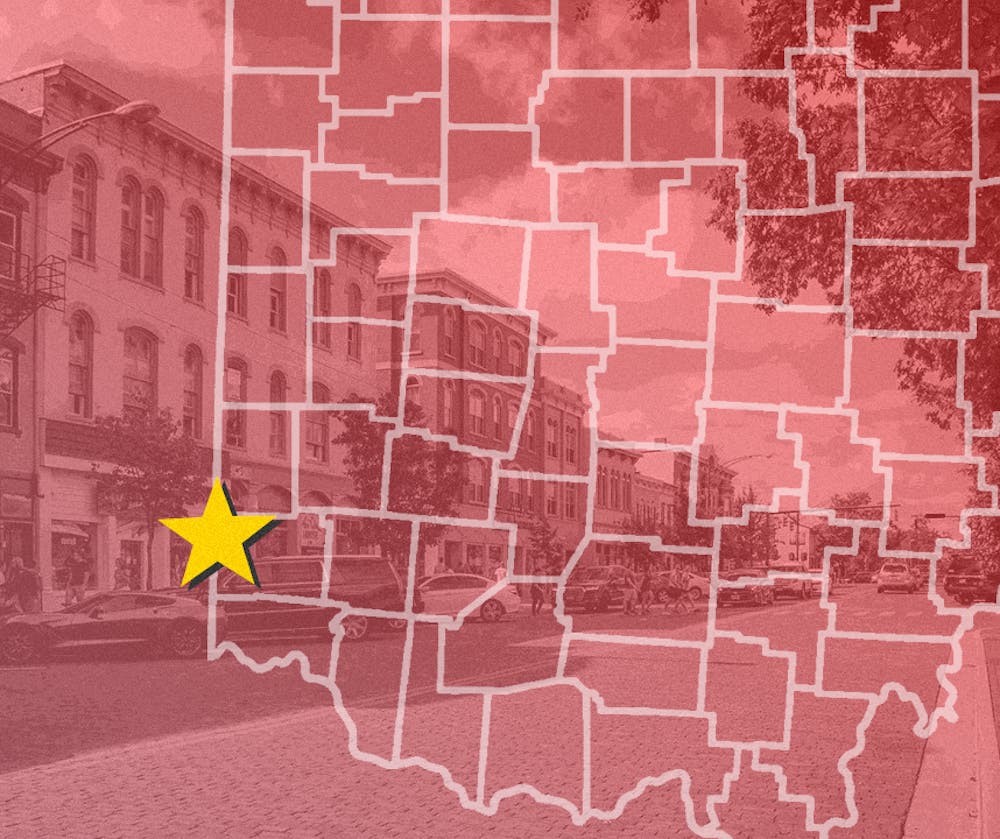Oxford’s mask mandate could be reinstated as early as Jan. 4 after a lengthy City Council discussion at its Dec. 21 meeting.
The city previously passed an emergency ordinance in August to require masks in public indoor locations. The measure expired Dec. 13, but Tuesday’s Council meeting centered on the possibility of passing a new mandate in the wake of the COVID-19 omicron variant.
Councilor David Prytherch said the atmosphere in town two weeks ago suggested the mask mandate was no longer necessary, but the constantly changing nature of the pandemic has made it necessary to reconsider.
“Between high vaccination rates and decreasing voluntary compliance, it just felt like it had run its course two weeks ago,” he said.
Despite the conversations, no resolutions or ordinances related to COVID-19 were brought to a vote.
City Manager Doug Elliott listed three priorities for Oxford to consider when moving forward with decisions related to the pandemic: preventing deaths, protecting hospitals from high caseloads and keeping businesses and schools open.
McCullough-Hyde Memorial Hospital currently reports that it is treating one patient with the virus, he said.
To meet these priorities, Elliott suggested that the city focus on encouraging vaccinations and booster shots, explore making at-home tests more widely available for the community, avoiding large gatherings during the holidays and encouraging rather than requiring mask-wearing.
Matt Rupel, a resident and chair of government relations for the Oxford Chamber of Commerce, argued against a new mandate. Aside from a lack of enforcement from both the city and businesses themselves, he said the mask requirement adversely affects both businesses and low-wage employees.
“There’s a troubling strain of elitism in these mandates,” Rupel said. “We say you can have 10 people sitting around at a restaurant — 10 unrelated people drinking wine, breathing, talking to each other for hours — but the person serving them their food has to have a mask on.”
Councilor Alex French said reinstating the mask mandate so soon after allowing it to lapse could erode the city’s confidence in its officials to lead Oxford through crises.
“I think what we deal with is confusion and lack of public confidence in our decision making, so I too think that we need to make a decision and stick with it,” she said.
Enjoy what you're reading?
Signup for our newsletter
To address the evolving nature of COVID-19, French suggested an ordinance that sets thresholds to mandate masks rather than start and end dates. These thresholds could be based on active cases in the community, patients at McCullough-Hyde or other city and county-wide metrics.
Councilors Chantel Raghu and Jason Bracken argued that mask-wearing was higher with a mandate than without, and a new requirement could therefore save lives.
Bracken said he believes based on his own observations 40% of the community will wear masks regardless, 40% won’t wear them no matter what and 20% could be swayed by public policy, which he saw as enough to make a difference.
Councilor Glenn Ellerbe said the situation in Oxford doesn’t need immediate action from the government and that acting on a hypothetical scenario felt authoritarian.
“We don’t have a problem here in Oxford,” Ellerbe said. “We may have a problem here in Oxford in the future, and we can account for that by … putting this on the consent agenda.”
Items on the consent agenda aren’t discussed at meetings unless a councilor asks to bring it forward. By putting a potential mask mandate on the consent agenda, Ellerbe said Council could respond to changes in caseload at McCullough-Hyde to make decisions in the future rather than passing a blanket ordinance.
Mayor Bill Snavely said the next meeting will include COVID-19 discussion on the agenda, this time with a representative from the hospital. The city will develop an emergency ordinance to put on the agenda in case the discussion sways the Councilors to pass a new mandate, though Snavely himself is still torn.
“It’s unenforceable, and we all know that,” Snavely said. “It’s kind of the big secret … We’ve got one person in the hospital, so maybe this is too early.”
Council will meet again in the new year at 7:30 p.m. on Jan. 4 in the Oxford Courthouse to discuss the potential mandate once more.




